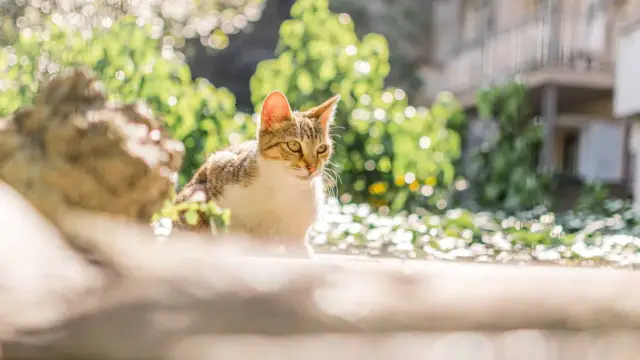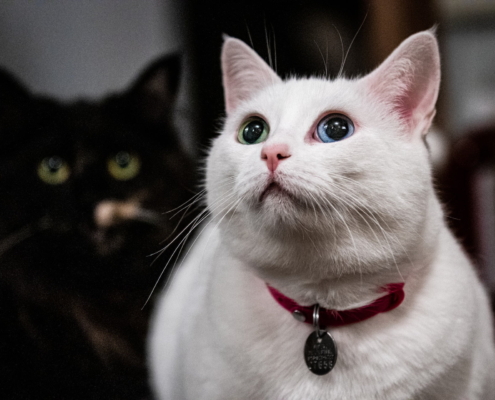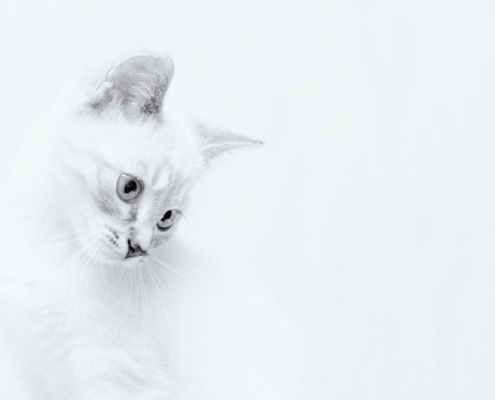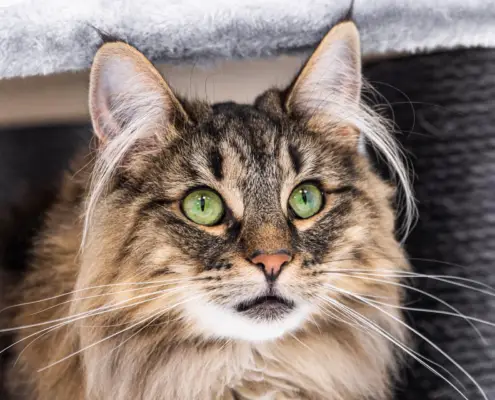
Cats are fascinating creatures with unique behaviors that often leave their human companions puzzled. One such behavior that has perplexed cat owners for centuries is their instinct to bury their poop. Unlike other animals that leave their waste exposed, cats go out of their way to conceal it. But why do cats bury their poop? In this article, we will delve into the reasons behind this peculiar behavior, exploring both the evolutionary and practical aspects of it.
The Instinctual Behavior of Burying Waste in Cats
The instinct to bury waste is deeply ingrained in cats. Even domesticated cats, who may never have set foot in the wild, exhibit this behavior. This can be traced back to their ancestors, who were solitary hunters in the wild. By burying their waste, cats were able to conceal their presence from potential predators, minimizing the risk of being detected. This survival instinct has been passed down through generations, even though most cats today live in the safety of our homes.
Evolutionary Reasons for Burying Waste
The evolutionary reasons for cats burying their poop go beyond mere survival. In the wild, the scent of waste can attract prey, leading them straight to the cat’s location. By burying their waste, cats not only hide their presence from predators but also prevent other animals from tracking them down. This behavior allowed cats to maintain their advantage as stealthy hunters, ensuring a higher chance of successfully catching their next meal.
Hygiene and Cleanliness in Cats
Cats are known for their cleanliness, spending a significant portion of their day grooming themselves. Burying their poop is another manifestation of their innate need for cleanliness. By covering their waste, cats minimize the chances of coming into contact with it again. This helps them maintain their pristine fur and paws, preventing any potential health issues that may arise from contamination.
Communication and Territory Marking
While burying their poop is primarily a hygiene and survival instinct, it also serves as a form of communication for cats. By burying their waste, cats leave behind their scent, marking their territory. This scent acts as a signal to other cats, warning them that this territory has already been claimed. In the wild, this marking behavior helps reduce conflicts between cats and prevents unnecessary confrontations.
Cat Litter and Its Role in the Burying Behavior
Cat litter plays a crucial role in facilitating the burying behavior of cats. The texture and consistency of the litter mimic the natural materials cats would encounter in the wild, such as sand or soil. This familiar substrate encourages cats to dig and bury their waste, satisfying their instinctual behavior. It is essential for cat owners to choose a litter that suits their cat’s preferences to ensure proper litter box usage.
Common Misconceptions about Cat Burying Behavior
There are several misconceptions surrounding the burying behavior of cats. One common misconception is that cats bury their poop out of shame or guilt. However, cats do not experience these emotions in the same way humans do. Burying waste is purely an instinctual behavior and has nothing to do with feelings of shame or guilt. Another misconception is that cats bury their poop to hide their scent from humans. While cats may prefer to keep their waste hidden, this behavior is primarily driven by their survival instincts and communication with other cats.
How to Encourage Proper Litter Box Usage
Encouraging proper litter box usage is essential for both the cat’s well-being and the harmony of the household. Here are some tips to promote proper litter box usage:
- Provide a clean and accessible litter box: Cats are clean animals and prefer a clean litter box. Scoop the litter box daily and replace the litter regularly to ensure cleanliness. Additionally, ensure that the litter box is easily accessible and located in a quiet and private area.
- Use the right litter: Cats have different preferences when it comes to litter. Experiment with different types and textures to find the one that your cat prefers. Some cats may prefer unscented litter, while others may enjoy scented options. Additionally, make sure the litter box is deep enough for digging and burying.
- Multiple litter boxes: If you have multiple cats, it is crucial to provide multiple litter boxes. Cats are territorial animals and may not want to share their litter box. Having multiple options gives each cat their own space and reduces the chances of litter box issues.
Medical Reasons for Improper Litter Box Behavior
Sometimes, cats may exhibit improper litter box behavior due to underlying medical issues. If your cat suddenly starts avoiding the litter box or shows signs of discomfort while using it, it is crucial to consult a veterinarian. Medical conditions such as urinary tract infections or gastrointestinal problems can cause cats to avoid the litter box. Identifying and treating these underlying issues will help restore proper litter box usage.
Conclusion
The mystery behind why cats bury their poop is rooted in their instincts and evolutionary history. This behavior serves multiple purposes, including survival, hygiene, and communication. Understanding and respecting this natural behavior is essential for cat owners. By providing a suitable litter box environment and addressing any medical issues, cat owners can ensure that their feline companions maintain proper litter box usage. So, the next time you witness your cat diligently burying its waste, appreciate the fascinating instincts and behaviors that make cats the unique creatures they are.
If you enjoyed my article, I would appreciate you sharing it with your network.

Sima Ndlebe
Sima writes for CatBuzz. He is interested in Cats, Health and Fitness, and Entrepreneurship.
Published: 1 November 2023



